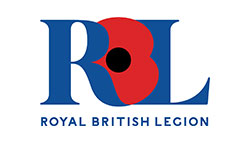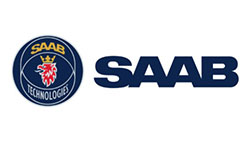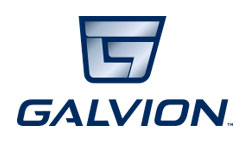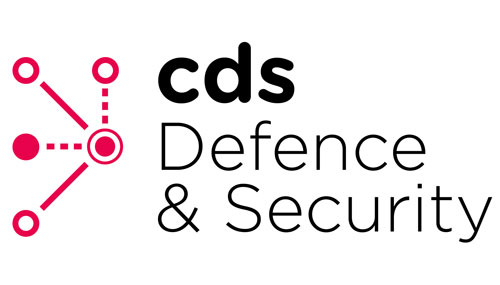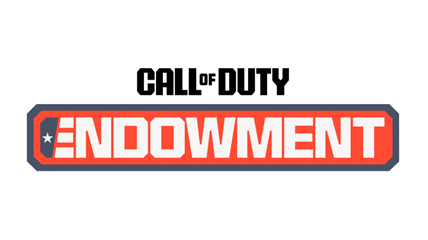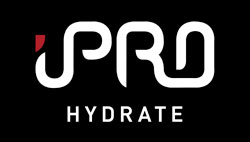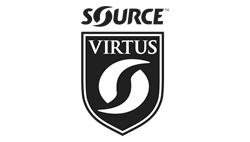Rob Hunter is one of the busiest coaches in the country at the moment as a key component of the team which has guided Exeter Chiefs to their first Champions Cup title last Saturday and then back to Twickenham for a fifth successive Premiership Rugby final this coming weekend.
Hunter is a familiar face to seasoned watchers of Army Rugby, having represented both the Army and Combined Services during his seven years in the Royal Engineers between 1989 and 1996. He left the Forces to become a full-time professional player with London Scottish and then Northampton Saints, but it is since becoming a coach in 2004 that he has enjoyed a consistent run of success, winning the Premiership ‘A’ League with Northampton, multiple Grand Slams with England Under-20, and latterly helping Exeter become a powerhouse of the English and European game.
It may be nearly 25 years since he last wore a uniform, but Hunter says that his experiences within the Forces have gone on to inform his underlying principles as a coach.
“It is a long time ago but I count myself as lucky as being part of the generation which worked before coming into rugby,” he says. “There’s a generation now who know nothing but rugby and some of that life experience is really important. When I first turned pro as a rugby player I remember turning up on day one, doing the first couple of weeks and finding it easy.
“I might not have been the most talented player, admittedly, but the reality of turning up on time, eating the right things, and putting the right effort in, was second nature because of the fantastic grounding I’d had in the Army. It was very similar – you’re part of the team, expected to do your role to the best of your ability and doing it flat-out.
“Transferring that into coaching has been easy. I was lucky to serve with some great guys and leaders in the Army so had some good examples and having those experiences of getting it both right and wrong have been important. I look back fondly on my time in the Army and am proud of it.”
Hunter arrived at Sandy Park in 2013, joining director of rugby Rob Baxter and linking back up with head coach Ali Hepher, who had been Hunter’s working partner at the helm of the Northampton Saints Academy. Fitting into the culture was straightforward, and while acknowledging that discussions in the coaching room can sometimes get heated, Hunter says that the alignment between the group has only become stronger as time has gone on.
“Culturally it was already a strong place with Rob and Ali before I arrived, and Ali and I have sung off the same hymn sheet when we’d worked together before,” he says. “It was not a hard fit for me. As a coaching group we do have intense discussions, but we are very aligned as a group.
“The focus and aspiration has grown and the last five years have been totally different. There have been some step-changes along the way where we’ve said that things are fantastic but we don’t want to be the plucky losers and everyone’s second-favourite team. We’re not that now! That’s what happens when you’re at the top.
“It’s good to have fun, but the big fun part is the winning. That changing room on Saturday with the Champions Cup in there, I’ll remember those next few hours for the rest of my life.”
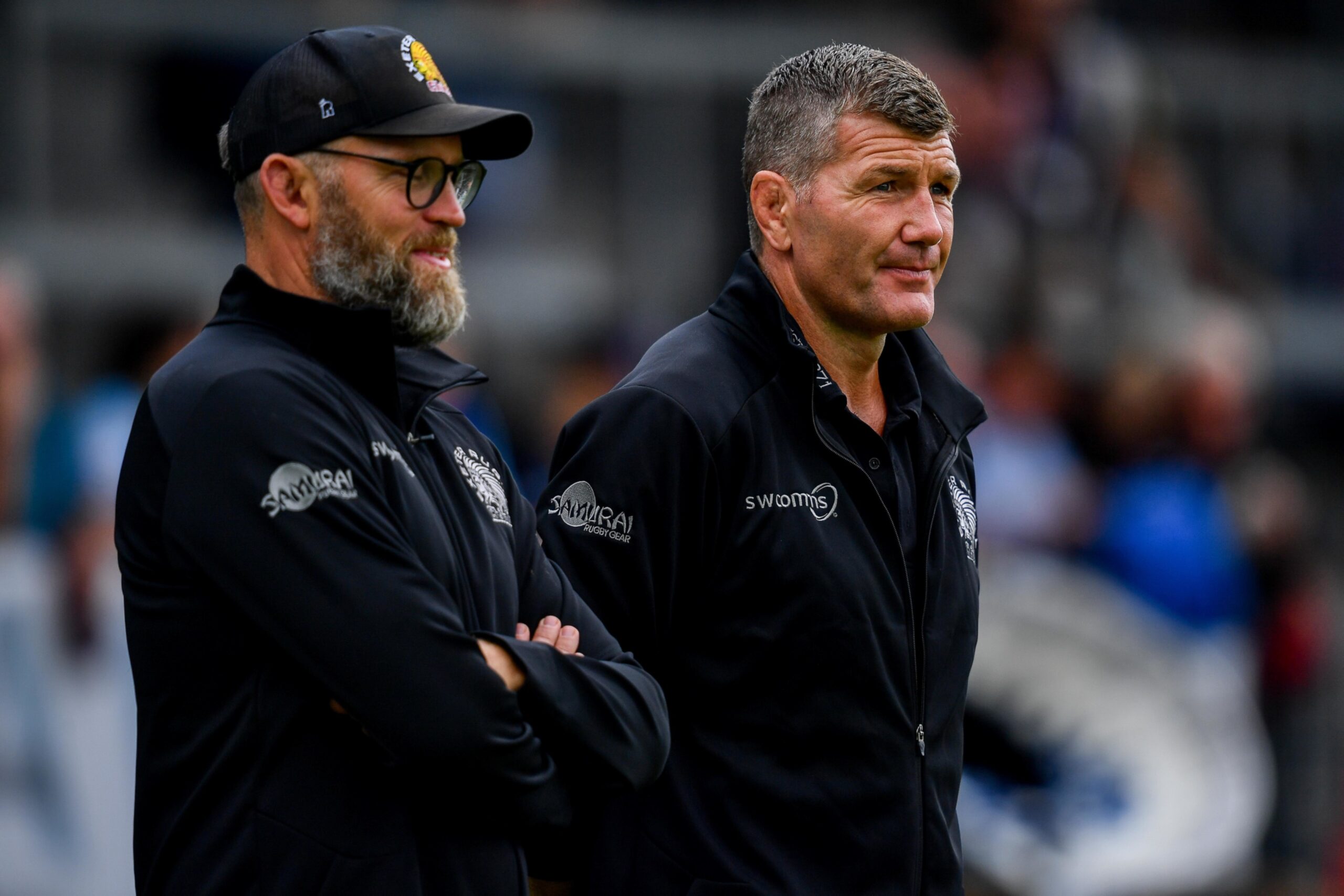
Saturday’s Premiership Rugby final marks the end of a campaign which has gone on for an unprecedented 13 months. Every season has its dramas where teams rise and others fall, and for every Wasps – who have come storming up on the rails in the second half of the season to go from candidates for the bottom two up to a second-place finish in the league – there is a Northampton, who sat in the top positions at Christmas only to slide down the table in 2020.
But it was no surprise to see the way Exeter picked things up straight off the back of the restart to carry on as they had left off before to finish top of the domestic table and overcoming Northampton, Toulouse and Racing 92 to lift their maiden European trophy in a dramatic evening in Bristol.
And for this Hunter is quick to credit the positive attitude shown by the players and staff throughout the lockdown.
“What was clear from the first day of the restart was how hard our lads had worked during the lockdown compared to some of the teams we’d played against,” he says. “That’s not just bigging up our lads but it was apparent in matches during those first four or five rounds.
“We operate at a pretty decent level anyway with a higher time of ball in play; we keep the ball on the pitch and have quick lineouts to get the ball back onto the pitch, so we’re fit anyway, but the lads worked really hard. So enormous credit to them for how they applied themselves, and the S&C staff and physios for how they got kit out to people to look after themselves.”
Culture and mentality come up time and again throughout the discussion and making sure that players are mentally ready for big occasions is essential. Hunter experienced a number of Army Navy matches, playing alongside the likes of experienced internationals Tim Rodber, Rob Wainwright, Mattie Stewart and Gareth Archer in the pack, and he says that there are parallels between any such event, regardless of who you’re playing for or coaching.
“How you approach a big game like an Army Navy is the same as the Champions Cup final,” he says. “You need to know your role, how you’re going to play the game, and be super-focused on that rather than getting side-tracked.
“We spend a lot of time with guys in getting rid of their limited beliefs. As you get into bigger games what happens is that they start to read and believe that you might only get one opportunity or that you can’t do something at this level. You can make it true and you see sides do it all the time, but it’s not true if you don’t want it to be.
“It does get easier with experience and the more you play in finals the easier it is. Saturday is a good example – we’ve played in a few finals but not like a Champions Cup, and we semi-froze for 20 minutes mid-game to let Racing roar back into it rather than shut them down, which we’d normally do.
“A lot of the time it’s down to even just the excitement of the occasion, where you’re looking at 80,000 people, your heart rate is jacked and you feel like a tuning fork, quivering with excitement. Every little thing that someone says or a bit of music takes on huge emotional meaning. All the senses are fine-tuned in. As you get used to that it becomes more of a norm for you and then easier to manage.
“That doesn’t mean that you can’t do well if you don’t have that experience but you really need to be aware of the potential pitfalls and talk about them.”
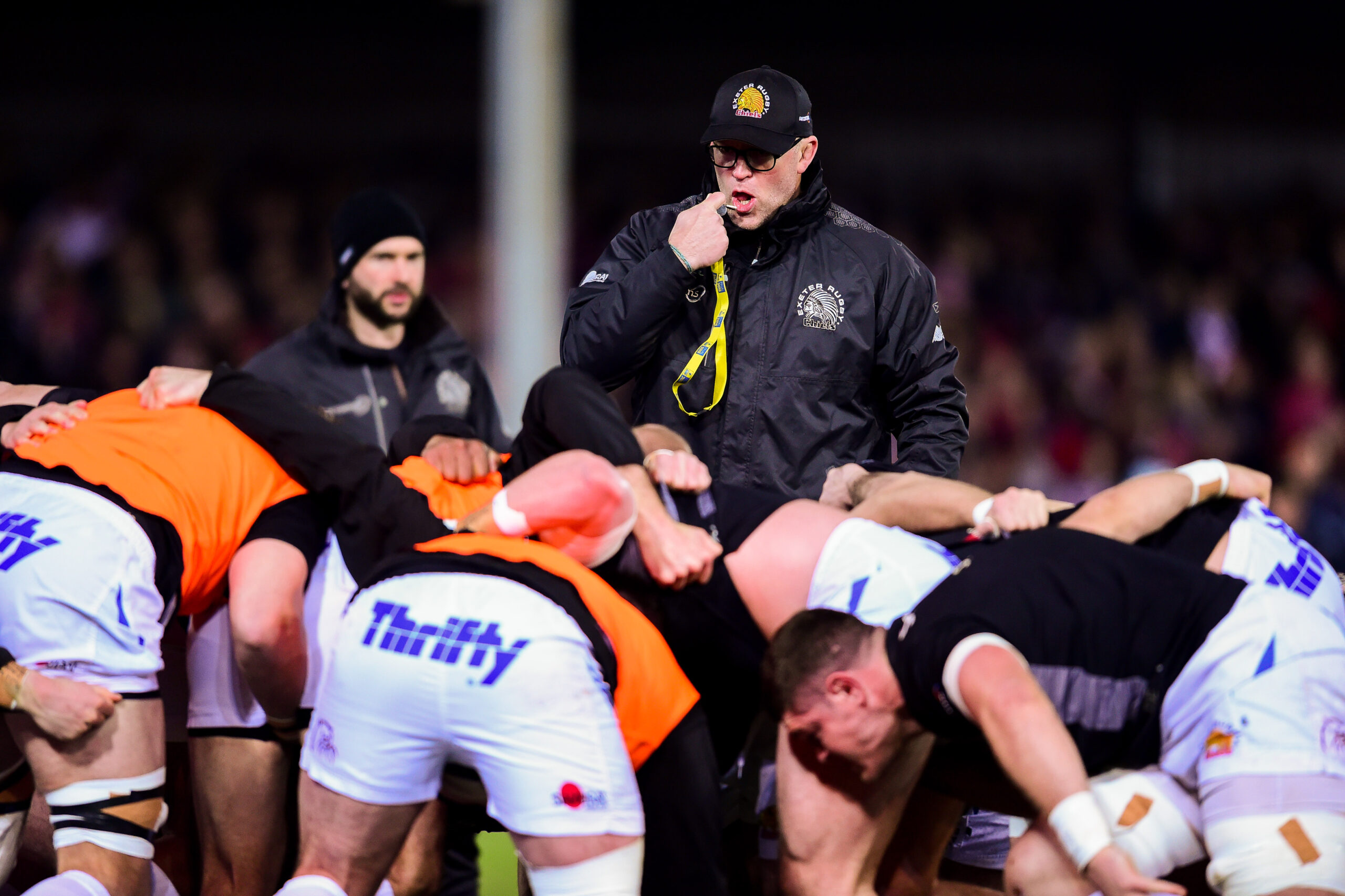
Exeter Chiefs has long-standing links with the Forces in Devon, putting players through their paces at Lympstone and with a number of ex-Marines on the club’s strength and conditioning staff.
And it is not just physically where there are parallels between the sport and what is expected of you in the Forces.
“Twenty-five years ago if you took a rugby team into a military environment there was a lot of stuff which was new to players,” Hunter says. “The sporting world has sought lessons from various different elite operators, be it military or the business world, and there’s so much crossover now between those areas.
“How you lead and work in a military environment is not massively dissimilar to the top end of a business or a rugby team on a pitch. It’s impressive watching our lads in a military environment and attacking a military task, because they can do it quickly and efficiently. That’s because their training is based on similar theory and groundwork. I even now still use the selection and maintenance of the aim, and maintenance of morale as my top two things.”
Two trophies in two weeks would be unprecedented for Exeter, and a rare achievement in English rugby. Only Saracens (2016, 2019) and Wasps (2004, 2007) have achieved a Champions Cup and Premiership Rugby double since the latter moved to a winner-take-all Grand Final, with Northampton doing a Challenge Cup and Premiership Rugby double in 2014.
And for Hunter it would be a significant milestone on a coaching journey which has lasted for 16 years already and has no sign of ending any time soon.
“I knew I’d be a better coach than a player,” he says. “The characteristics I had as a player were going to make me effective as a coach. The reality is that I knew I wanted to be the best at what I wanted to do and put all my energy, time and enthusiasm into it. That’s because if you want to be a Heineken Cup winner or a Grand Slam winner that’s what it’s going to take. There are no short cuts, no easy routes. You’ve got to take the hard route.”
Saturday’s Premiership Final kicks off at 6pm with live coverage on BT Sport.
Words © Chris Wearmouth, Images © Exeter Chiefs
